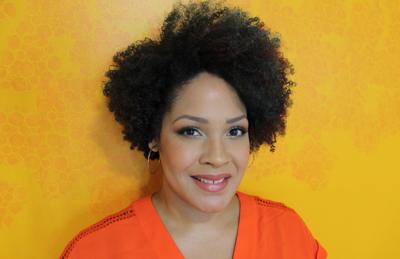
Ijeoma Oluo
Ijeoma Oluo’s So You Want to Talk About Race is a bracing if often strident mix of polemic and tutorial, a social justice manual and a challenge to White America, an alternately seductive and alienating book about broaching a difficult topic.
More than that, it’s about coming to grips with a grim reality: that white supremacy isn’t just a rallying cry for hardcore racists, but a concept woven deep into the history of the United States, upheld first by the economics of slavery and later the full force of Jim Crow laws — and which has never been fully purged from the system.
Oluo, speaker for the 25th anniversary of the Adrenée Glover Freeman Lecture in African American Women’s Studies at the University of South Carolina, will be giving the free talk this Thursday in the McKissick Museum Auditorium.
“When we look at racism as a system,” she writes, “it becomes much larger and more complicated than it seemed before — but there is also more opportunity to address the various parts of it.”
She broke down some of those parts in a phone interview with Free Times.
“It’s built into how we educate people,” Oluo says of systemic racism. “It’s built into who gets paid what. It’s built into the labor we extract from prisoners. All of this — and none of that actually requires feeling. Feeling just makes it a little bit easier. Because it’s in everything, it means that it’s in you. It’s in everyone … it’s almost impossible to root out.”
For Oluo, talking about race is key; not so much online as face to face.
“It is difficult because it is real then,” she continues. “You’re staring someone in the eye. Your emotions are much more involved.”
Breaking down barriers has a lot to do with making people realize that they exist, of pointing out how skin color and privilege can extend opportunities to some at the expense of others.
“A lot of people are incredibly ignorant of the actual state of people of color in this country,” she says. “When the average black household has one-thirteenth of the wealth of the average white household, that’s an astronomical difference, that’s a difference that’s beyond luck, beyond random. When we look at imprisonment stats, when we look at infant mortality rates, when we look at pay, when we look at health care, every stat of wellness — race is one of the top indicators of how we feel in this country. When you look at that, you come to two conclusions: there’s something either really wrong with our system, or there’s something really wrong with people of color.”
Despite her book’s title, Oluo’s concerns aren’t strictly limited to race. She’s a strong proponent of intersectionality — of groups (straight, queer, trans, well-educated or working class, disabled or able-bodied) not so much ranking their needs as working together.
“There are many other systems of oppression out there and all of them are devastating to the people they impact and [often] they work together with systems of race to double that impact,” she explains. “If we’re talking about race, but we’re only looking at one segment of people of color because our society kind of erases other people, or denigrates other people, then we aren’t actually fixing a problem of oppression.”
Oluo’s best-selling book has been widely reviewed, praised and debated — a go-to book in a racially-charged era of American life. Would it have received the same response if the results of the 2016 Presidential election were reversed?
She ponders this for a moment, and considers that race has been on the front burner well before the emergence of Donald Trump.
“Perhaps there would have been that weird celebration moment, especially for a lot of liberal white America, and they would have been like, ‘Oh whew, I don’t have to worry about this race thing because the racist didn’t win,’” Oluo speculates.
For many, the book could be a wake-up call — but as the author points out, she’s addressing the same central issues that were raised throughout the 20th century by writers like W.E.B. DuBois and James Baldwin.
“Everything that liberal White America is terrified of happening to them has already happened to us,” she says. “And no one was raising the alarm.”







